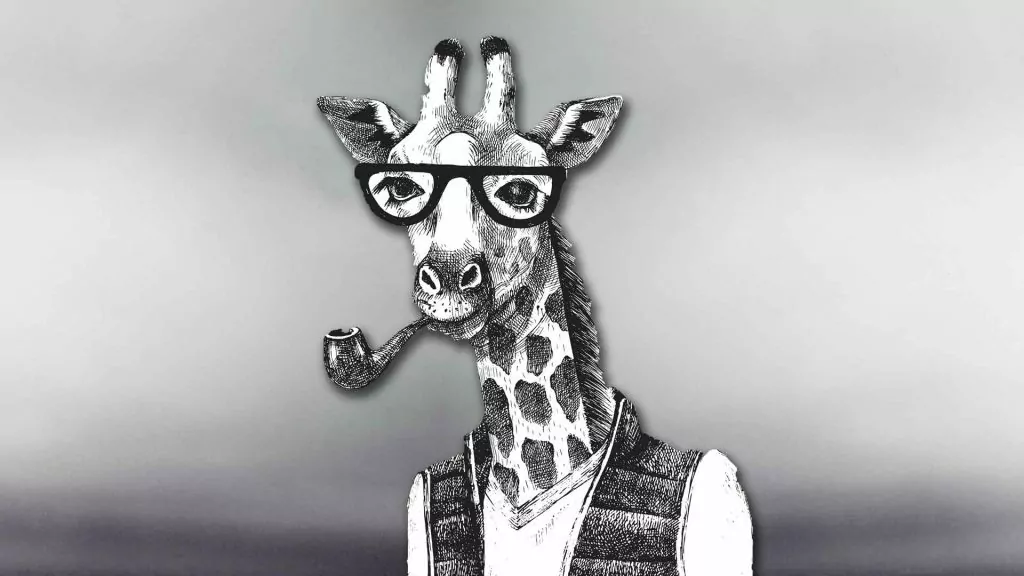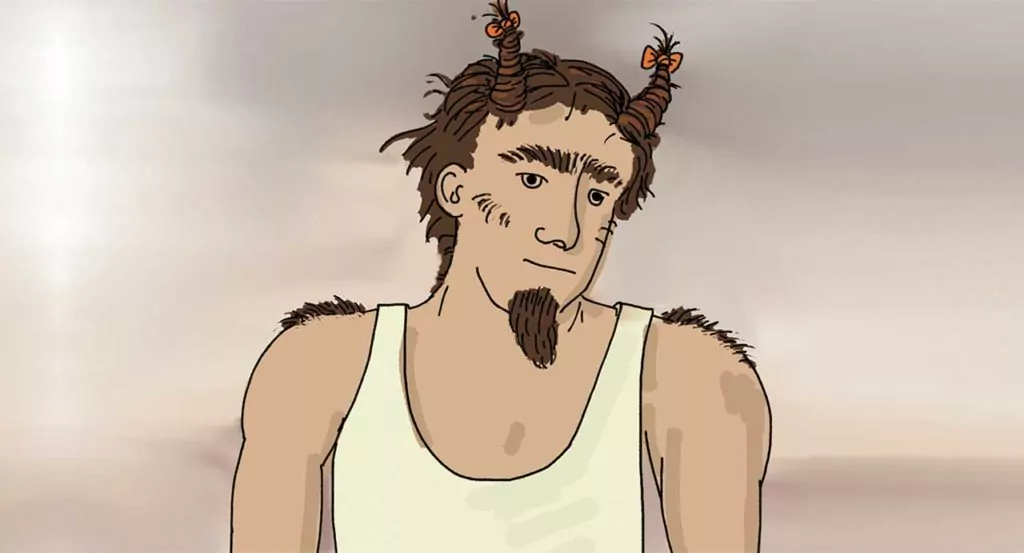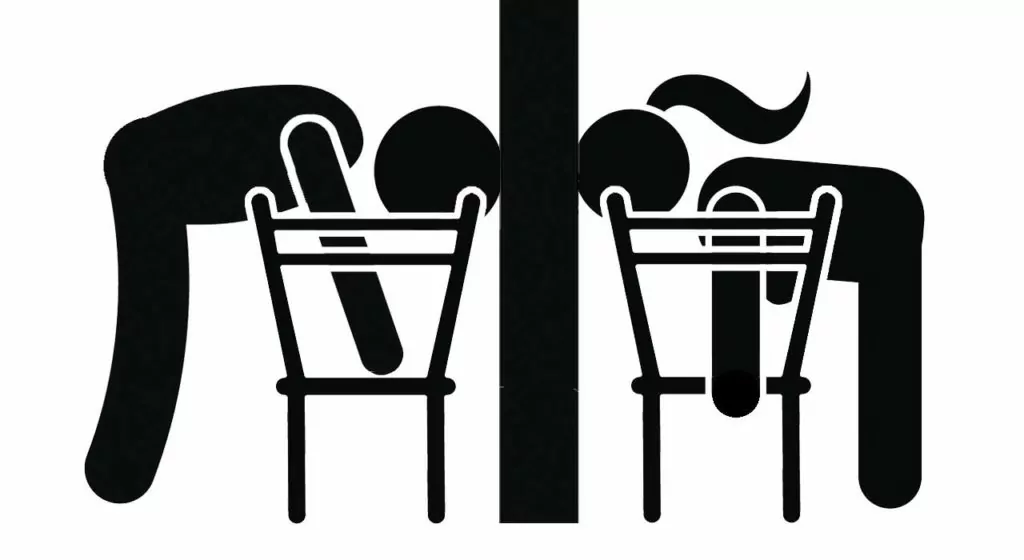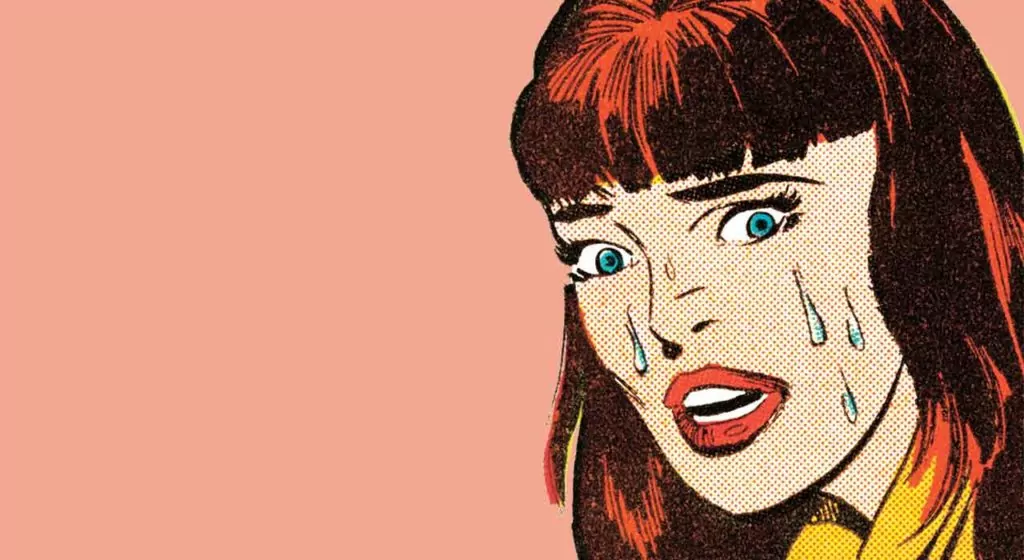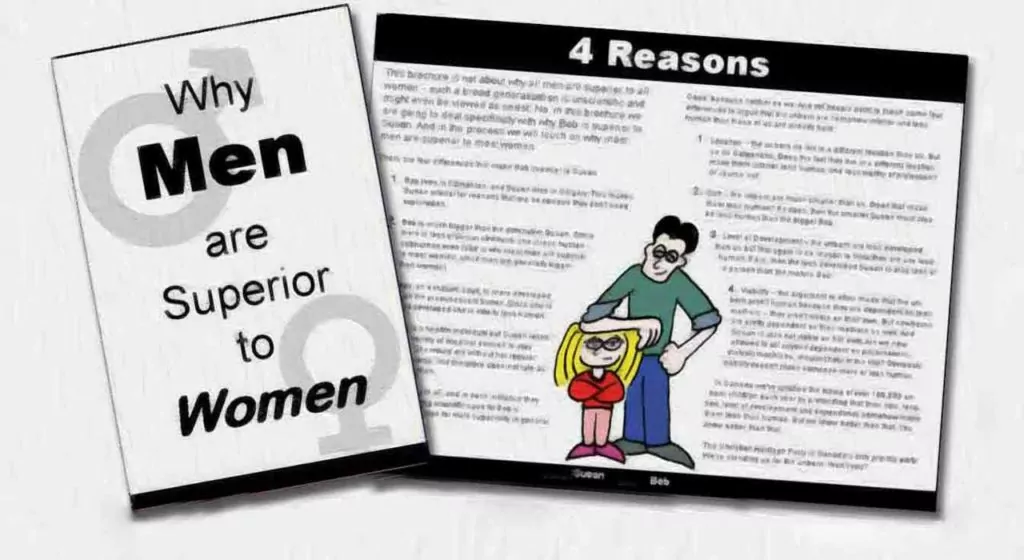Are you a transkindophobe?
Doctor Clive Gledhill looked down at his watch – 4:30. Only half an hour until the surgery shut and then he could head off home for the day to his family. He looked at the screen in front of him and saw that he had just two more patients booked in. Perhaps they might give him a more interesting end to the day than what had gone before. A few cases of stomach upset and flu – that was about it, so far as he could recall.
“Yes, come in,” said the doctor as he heard a tap at the door. As it opened, he looked up to greet his patient, only to find himself startled. “You wanted interesting?” thought the doctor. “Well here is interesting.”
The man entering the room was perhaps the oddest looking person the doctor had ever seen. The fabric that made up all his clothes – from his shirt all the way down to his socks – consisted of a series of irregular shaped brown patches, with white lines in between, rather like a mosaic. It seemed to be patterned like some sort of animal, though for the life of him the doctor couldn’t think what. He also had this same design tattooed onto his hands.
Around his neck he wore a series of metal coils – the sort of thing worn by women in the Kayan and Ndebele tribes, which is wound around the neck in order to stretch it. His arms were hung long and loose in front of him, almost as if he were trying to reach down to the floor with them. But perhaps the oddest thing of all was what he was doing with his mouth. He was chewing, but not in the way people chew gum. Rather it was a slow and ponderous action, not too dissimilar to a ruminant chewing the cud.
“Come, take a seat,” said Dr. Gledhill beckoning him to sit in the chair on the opposite side of his desk.
“I prefer to stand,” said the patient, moving the words around his mouth slowly as he continued to ruminate.
“As you wish,” replied the doctor. “Now tell me, how can I help you today?”
The oddity shifted around somewhat apprehensively. He seemed nervous and reluctant to speak at first, but the patient manner of the doctor seemed to put him at ease.
“Before I tell you of my condition, I would like an assurance from you. Tell me, doctor, do you consider yourself to be a tolerant man?”
“Strange question,” thought Dr. Gledhill. Nevertheless he answered in the affirmative, adding that he considered himself to be a man of some high level of tolerance.
“Good,” replied the man. “And do you think yourself to be completely open and non-judgmental.”
“Well, I would say that I am fairly open,” replied the doctor. “I’ve practiced medicine for nearly thirty years now and I doubt whether there is much I haven’t seen. As for non-judgmental? I don’t suppose I am any more or any less judgmental than anyone else. We’ve all got our prejudices about something or other, but I suppose I try to be as impartial as possible. Can I ask to what these questions tend?”
“Yes, you may,” answered the man. “Dr. Gledhill, I have now been to no less than five doctors about my condition. Yet not one of them has taken me seriously. In fact they have all more or less ridiculed me and sent me out of their surgery. I have been humiliated and left feeling emotionally wrecked by the treatment I have received by various members of your profession. Which is why, before continuing, I seek reassurance that you will not treat me with the same derision as I have received before.”
“Okay,” said Doctor Gledhill pondering the request, “I promise that I’ll be as open-minded and fair as I am able. Now, what seems to be the problem?”
The patient nodded approvingly at the doctor, before walking slowly around the room. As he spoke, every so often he would stand on tiptoes, straining as if he were trying to reach high up for something.
“Ever since I was a young child I have felt different,” he said.
“How do you mean different?” asked the doctor.
“What I mean is that even when I was a small boy, I would look around at the other boys the same age as me, and I knew I just wasn’t like them. Ever since I was about six, I knew what I really was – and it wasn’t what people thought. And the problem has never changed. In fact it has just got worse and worse. For more than thirty years, I have lived a lie. I can hardly describe it to you, but the ‘me’ you see on the outside is completely and utterly different from the ‘me’ on the inside.”
“Aha,” thought doctor Gledhill. “I think I know what is coming up.”
“The effects on my life have been disastrous and I find myself almost friendless, doctor. My behavior is too much for most people, and I daren’t tell anyone why I am the way I am. That is why I am here. The real me has been trying to burst out for years, but until now I always thought too much of public opinion to actually do anything about it. But enough is enough and I must finally seek a solution.”
Doctor Gledhill looked at the man for some moments, weighing up his response.
“Look, I think I understand what you’re saying,” replied the doctor after some moments. “Ever since you can remember, you have felt more female than male and now you’ve come to me asking if I can put you forward for a sex change. I must say I’m surprised by the reaction you received from some of my colleagues in the medical profession. Sex changes are really quite common these days and there’s nothing to be ashamed or embarrassed about. If you like, I can refer you to a consultant I know at the hospital who specializes in these procedures.”
“Oh no, you don’t understand,” said the man looking a little put out. “I’m perfectly happy with being male. I have no desire to become female and I did not come here seeking a sex change.”
“Well, I’m terribly sorry if I have misunderstood you,” replied the doctor, surprised by the response. “It’s just that everything you told me sounded remarkably similar to other cases I have dealt with where the patient was seeking to change their sex. So then would you mind correcting my error?”
“Yes of course,” replied the man. “Can’t you tell by looking at me? I’m not looking for a sex change. I’m happy with my gender and wouldn’t dream of trying to changing it. What I’m looking for is a species change.”
Dr. Gledhill’s head jerked back sharply as if he had just received an electric shock. Had he heard the man right? He’d said he was looking for a species change, hadn’t he? Surely not. Better check.
“Look, I’m sorry if I have misheard you, but did I hear you say you were looking for a species change?”
“Yes, you did,” replied the man.
“And what species are you looking to become?“ asked Dr. Gledhill warily.
“Why surely that is obvious.” replied the man somewhat disdainfully. “Ever since I saw pictures of the Maasai Mara as small boy, I have wanted nothing else than to be a giraffe.”
Dr. Gledhill quickly attempted to gather his thoughts. Surely this must be some sort of joke. Perhaps one of his colleagues was playing a hoax on him. Yet since the man looked in earnest and gave not the slightest hint of any prank being played, he decided that his best course of action would be to try and talk the man round to a normal way of thinking.
“Look I understand that you may have issues and problems that perhaps need addressing,” said the doctor in a soothing tone. “But you do know that you can’t just become a giraffe, don’t you?”
“And why not?” came a rather stern reply.
“Well…” stumbled the doctor searching for the right words, “well…because you are human. You were born a human and that is what you are. You can’t change that.”
“But you were happy to refer me for a sex change?”
“That is entirely different,” answered Dr. Gledhill. “There is a world of difference between changing one’s sex and changing one’s kind.”
“Oh there is, is there?” said the man cynically. “I’d love to know what that difference is exactly. Apparently my kind is fixed but my gender isn’t. Tell me doctor, you’re not a creationist by any chance, are you?”
It took a lot to offend Dr. Clive Gledhill, but this comment hit a raw nerve. He most definitely was not a creationist and he was not about to let his patient off without letting him know this in the sharpest possible terms. “No I’m not a creationist, thank you very much,” he replied tartly. “I absolutely affirm the Darwinian theory of natural selection. But what of it?”
“Then you believe in the mutability of species, you deny the fixity of kinds, and you affirm that we both evolved from apes all the way back to some kind of bacteria?”
“Yes I do,” replied the doctor.
“Well then since you affirm these things to be true,” replied the man, “why do you deny the possibility that I can change from a human to a giraffe.”
“Why a giraffe? How about an ape, since they are our nearest cousins,” said the doctor sarcastically.
“I was never very good at climbing trees – it makes me giddy – so I dread to think what swinging through them would do,” replied the man with total seriousness. “But you have avoided my question. Look, since you affirm that the gender of a person is not so fixed that it can’t be changed, an opinion which must surely be based on an evolutionary understanding of the world, and since you believe in the morphing of atoms into creatures and of kinds into other kinds, why would you then claim that humanness is so fixed that it cannot be changed?”
“Well,” said the doctor, thinking as quickly as he could. “I’m not sure whether such a thing is even possible, but even if it were, would it be desirable? And even if it were both possible and desirable, we certainly do not have the capability of performing species change operations at present.”
“Then might I suggest that the scientific establishment begin researching into this capability,” said the man indignantly. “They claim that they can make a man out of a woman or a woman out of a man by cutting bits off here and there and by the injection of various hormones. But if they are as serious about the mutability of species and kinds as they say they are, maybe they need to put their money where their mouths are – else I shall think that they neither understand nor fully believe the logic of their own convictions.”
“And might I suggest that you go and see a psychiatrist and perhaps talk over your issues with them?” replied a clearly irritated Dr. Gledhill.
“It doesn’t surprise me,” replied the man walking towards the door. “All of the previous doctors I have seen have told me pretty much the same thing. They all affirmed their belief in evolution, yet when push came to shove, they have backed off from the implication of their beliefs, which is that nothing is fixed and so everything is open to change – including a medically-induced species change. I see that you are no more open to change than any of them were.”
And with that he walked through the door leaving Dr. Clive Gledhill somewhat shell-shocked at the conversation he had just had. After some moments he managed to pull himself together. “Species change indeed,” he muttered to himself. “Let’s hope my final patient just has an upset stomach.”
Rob Slane is the author of A Christian and Unbeliever discuss Life, the Universe, and Everything ...













